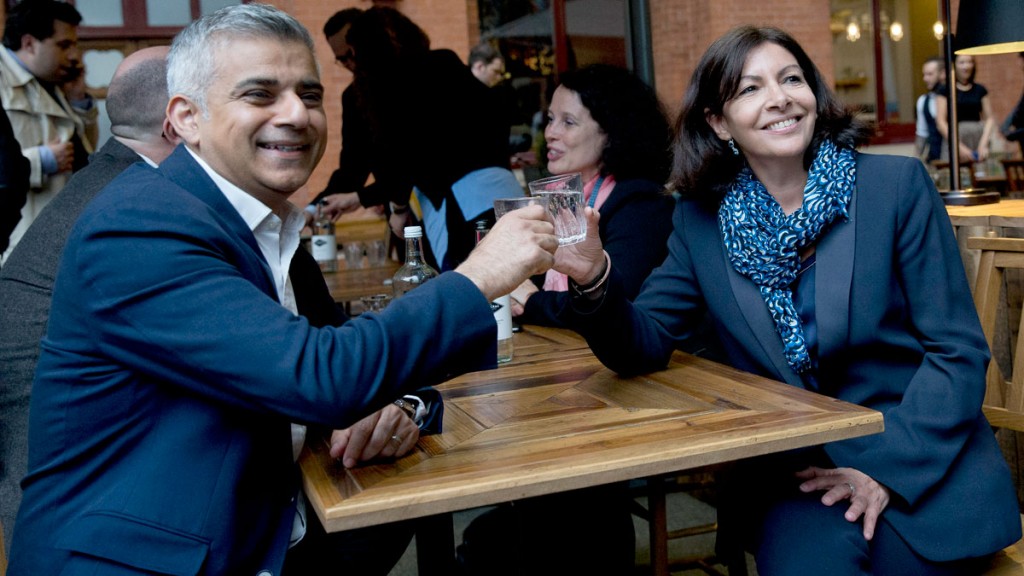
Britain’s decision to leave the European Union has opened up a deep fissure running across public opinion with the Inners and the Outers glaring at each other over a widening gulf. That’s been particularly evident in London. While the country overall opted to leave by 52% to 48%, London voted to remain by 60%, something that hasn’t been lost on observers across the Channel.
On Monday, London and Paris mayors Sadiq Khan and Anne Hidalgo published a joint statement in the Financial Times and French newspaper Le Parisien declaring that “despite the outcome of the EU referendum, our two cities must now work more closely together than ever before in order to deliver on our shared agendas”.
The referendum’s focus on immigration is likely to have struck a chord with the mayors. Khan’s parents were migrants from Pakistan, while Hidalgo was born in Spain, and has in the past faced questions over her amour de la patrie. But such questions tend to crop up less in big cities which are cosmopolitan by nature and that means cities will always have a different outlook, so the argument goes. “In cities we celebrate our diversity and see our differences as a great source of strength”, say Khan and Hidalgo.
Indeed, says French magazine Le Point. Their “initiative should be all the more welcome in London, where the British capital has more than 200,000 French residents and voted massively in favour of remaining in the EU”.
And that’s precisely the problem, Valérie Pécresse counted, quoted in Le Monde. As the regional council president of Île-de-France, the region that includes Paris, she disagrees that cities can have shared agendas and argues that Brexit provides just the opportunity to tempt some of those 200,000 back: “All big cities are out to repatriate the businesses that want to leave the United Kingdom… It is absolutely vital that we roll out the red carpet.”
So, is it possible for cities to rise above the scrapping between nations? Mayors Khan and Hidalgo think it is. They would rather concentrate on building “far stronger alliances between cities across Europe and the world”. After all, they say, “if the 19th century was defined by empires and the 20th century by nation-states, the 21st century belongs to cities”.
But not so fast, says Laurent Chalard in French newspaper Le Figaro. The idea of a world of city states is nothing new, having been proposed by Japanese theorist Kenichi Ohmae in 1995. He cited Singapore as a model for how that might work and he certainly hasn’t been the last. Many of the over 178,000 who have signed an online petition calling for London independence have done the same.
It’s a nice idea, but it tends not to work out in reality, says Chalard. “The history of Europe has shown that each time big cities have leaned towards emancipation from their states, it has always ended badly for them… The world of city states probably isn’t for tomorrow!”